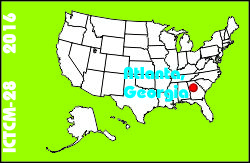
Electronic Proceedings of the Twenty-eighth Annual International Conference on Technology in Collegiate MathematicsAtlanta, Georgia, March 10-13, 2016Paper A016
Assessing Core Curriculum in the Foundational Component Area of Mathematics For Undergraduate Research |
Rohitha GoonatilakeTexas A&M International University harag@tamiu.edu list of all papers by this author | Miguel San MiguelTexas A&M International University msanmiguel@tamiu.edu | Runchang LinTexas A&M International University rlin@tamiu.edu | Sofia C. MaldonadoTexas A&M International University sofiac.maldonado@tamiu.edu | Aida C. GarzaTexas A&M International University aidagarza@tamiu.edu |
| Click to access this paper: |
ABSTRACT
The Texas Higher Education Coordinating Board (THECB) revised the Texas Core Curriculum (TCC) rules in October 2011. Implementation of the rules and revisions was effective Fall 2014. The Coordinating Board based the revisions on the recommendations of the Undergraduate Education Advisory Committee (UEAC), which is comprised of faculty members from Texas public community colleges and universities. In particular, College Algebra, Plane Trigonometry, Business Mathematics-I, Pre-calculus, and Calculus-I courses will be evaluated on a rotation basis to see if the content of the courses meet competencies in Critical Thinking, Communication Skills, Written Communication, and Empirical & Quantitative Skills necessary for expanding discipline-specific undergraduate research and scholarship. This presentation will discuss the way these courses were selected, the nature and extent of the assessment being conducted, and, most importantly, the technology and textbook materials being used in the courses at Texas A&M International University (TAMIU).Keyword(s): student research
